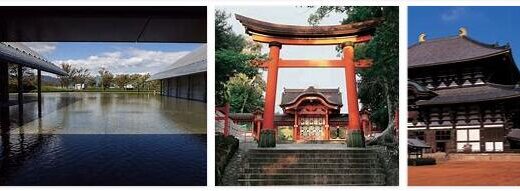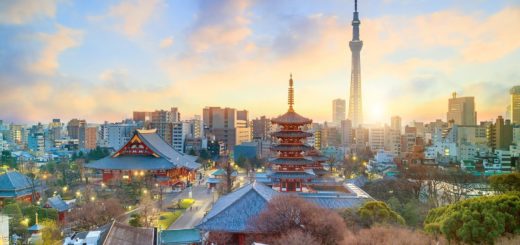Japan Between 1976 and 1992 Part III
The debate on the reasons for the moderate defeat directly affected the interpretation of the Japanese political moment in the late 1980s. Four were the reasons that were identified, with different assessments on the role that each could have had in determining the defeat: popular discontent over the value added tax, the protest of the world of rural producers for the relaxation of protectionism in the sector, the reaction to the numerous scandals (economic or customs) that had involved the liberal-democratic world, the emergence of a feminist protest that would have found in the figure of Mrs. Doi and in the numerous female candidates of the Socialist Party a suitable instrument of catalysis.
The most likely hypothesis was naturally that of a convergence of the various reasons and most observers seemed inclined to believe that the next elections would have significantly reduced the scope of the July 1989 episode. In fact, the elections of 18 February 1990 for the renewal of the Lower House they recorded a more consoling result for the Liberal Democratic Party which satisfactorily contained the loss of seats (from 300 to 275) and retained an absolute majority. On the other hand, the very clear success of the Socialists, which went from 85 to 135 deputies, was partly nullified by the negative result of the other opposition parties (Communists, neo-Buddhists, Social Democrats) which lost a total of one third of their seats. The administrative elections of April 1991, on the other hand, on the whole they marked a liberal-democratic recovery and a socialist downturn. Kaifu, who had unsuccessfully presented an electoral reform aimed at redesigning the constituencies, introducing the proportional system in a number of them in order to limit conflicts between the factions, was replaced in October 1991 in the office of president of the party and of prime minister by Kiichi Miyazawa, former finance minister. In any case, the changed international context determined by the crisis of the Soviet Union, by the upheavals in Eastern Europe, by the Tien An Men massacre in Beijing, have not failed to have indirect repercussions also on the Japanese political situation, mitigating the reasons that for the whole postwar period had contributed to maintaining the political dominance of the Liberal Democrats.
According to SPORTSQNA, the end of the Eighties marks the conclusion of that phase that had opened in 1982 with the advent of Nakasone. In this regard, one cannot fail to mention a mainly but not exclusively symbolic fact: the disappearance, on 7 January 1989, of the emperor Hirohito after 62 years of reign, with the consequent advent to the throne of the crown prince Akihito and the contextual replacement of the ” kingdom name ” of Shōwa with that of Heisei, which means “The making of peace”. The fact can be considered mainly symbolic if we take into account the modest impact that the role of the emperor now plays in the politics of the country. But it is not only symbolic, for the reference that the dynasty continues to constitute, at least for the right-wing forces of the country, and for the fact that the name of Hirohito is inevitably linked to the memory of autocracy and pre-war expansionism.
Indeed, during the months of Hirohito’s terminal illness and in the two years that followed, during which the complex ceremonies, religious and institutional together, which perfected Akihito’s rise, a series of debates and hypotheses arose in the Japanese cultural and political world: from the resumption of the controversy over the possible personal responsibilities of the old emperor in the Thirties and Forties, to the debates on the complex rituality of the funeral and the subsequent coronation; these would have posed delicate problems of the relationship between religion and politics, two spheres for which the Constitution provides for a rigid separation. Nor was there no shortage of those who foresaw violent traditionalist regurgitation (acts of violence against progressives, a significant number of ritual suicides).
In June 1992 the Socialist Party engaged in a very hard obstruction to prevent the law proposed by the ruling party that allowed the sending of Japanese soldiers to be passed in the Chamber of Councilors, where the Liberal Democratic Party did not have an absolute majority. abroad to participate in peacekeeping missions under the aegis of the UN. The opponents of the law justified their choice by referring to the pacifist nature of the Constitution. The law was however approved also thanks to the acceptance by the Liberal Democrats of some amendments proposed by the other two opposition parties, the Social Democrats and the neo-Buddhists. In July the elections for the half of the House of Councilors saw a landslide victory for the Liberal Democrats who, while not regaining the absolute majority, they won 69 of the 127 seats up for grabs. This result was explained by observers as a consequence of the liberal democrats’ ability to divide the opposition and the mistake made by the socialists in opposing the law on sending soldiers abroad even in the case of peacekeeping missions. Another significant fact of those elections was the high number of abstentions (only 50.8% voted), probably linked to the numerous political scandals. abroad of the military even in the case of peacekeeping missions. Another significant fact of those elections was the high number of abstentions (only 50.8% voted), probably linked to the numerous political scandals. abroad of the military even in the case of peacekeeping missions. Another significant fact of those elections was the high number of abstentions (only 50.8% voted), probably linked to the numerous political scandals.



